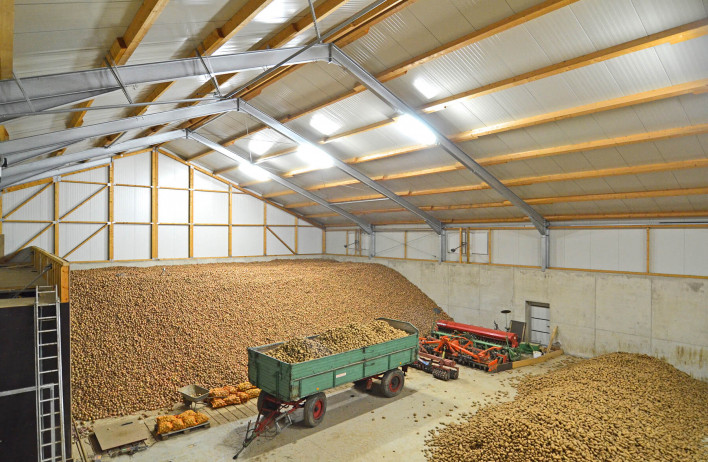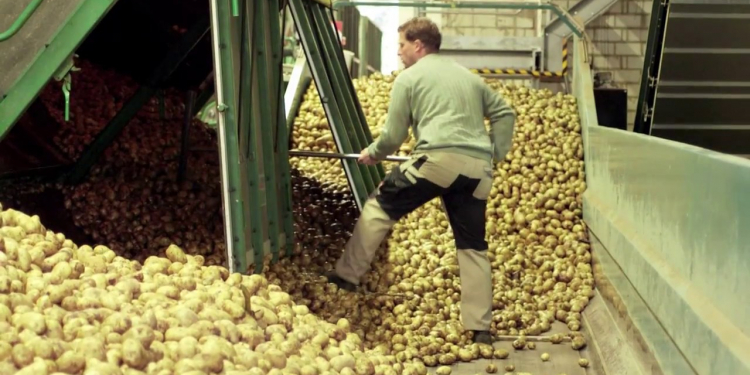The Council of State considers a conflict between an arable farmer from Heijningen (NB) and the Environment Agency for Central and West Brabant (OMWB) over a batch of tare soil (residual soil from washed potatoes or other tubers) to be a matter of principle.

That is what judge and councilor Bruno van Ravels said in so many words this week during a lawsuit in The Hague. A ruling in this Heijningen case could have consequences for arable farmers throughout the country. In any case, the highest administrative court will examine whether the OMWB arable farmer could impose a penalty of 9,000 euros on Aart Maris.
The West and Central Brabant environmental service decided to do this after Maris had reinforced a slope of the Kraaiendijk with 250 cubic meters of tare soil, without conducting an investigation into the content of pesticides and fertilizers. According to the OMWB, he should also have made an environmental report. Because Maris did not respond 1,2,3 to a letter from the environmental service, he forfeited 9,000 euros.
Maris said he was unable to respond in time due to the corona time. The potato grower did not understand why the OMWB suddenly started to enforce so strict on his tare soil. “I’ve been using tare soil for this sort of thing for years. That was never a problem. Fellow arable farmers also use tare soil for leveling and reinforcement.”
Trouble
The OMWB spokeswoman said that according to the national soil regulation (BBK), tare soil may only be returned to a field where the same types of crops are grown. “And not on a dike slope with grass. It can contain all kinds of hazardous substances that do not belong there. Maris could have saved himself a lot of costs and misery by removing the tare soil from the slope and driving out into his field. Or he could have carried out an environmental study for 1,500 euros to determine that the tare soil does not contain any dangerous pesticide residues.”
Maris and his counsel J. van Houtum said they found it incomprehensible why, after years of sitting still, the OMWB suddenly starts throwing high penalties for something that never bothers anyone. “So many of my colleagues use tare soil for raising the level, the vegetable garden, or reinforcing the embankment. The embankment where I tamped the ground is actually my property. And why is only me being singled out and no one else. I already know five colleagues in the area who have done the same.” Council of State Van Ravels wanted to know what was going on. “We are now also investigating whether we will tackle more offenders with tare soil,” said the spokeswoman for the Brabant environmental service.

More complicated
Council of State Van Ravels found the matter more complicated than it seemed in advance. “There are some basic aspects to this penalty case, after all. I may bring in two more judges to study the case more closely.” The state council thought it was strange that tare soil can still be used on fields where food is produced, but as soon as the farmer does something else with it, it would suddenly become a kind of waste soil. If the OMWB proves right, then the arable farmers may only return their tare soil to the cultivation fields of origin, or they must demonstrate through costly investigations that there is no danger to public health.
Maris said he finds it ridiculous that he is allowed to grow potatoes in the ground but is not allowed to strengthen his dike with them. Counselor Van Houtum added that Maris could have tamped the slope with slightly polluted industrial B soil, but not with arable land.
There may be a follow-up session with three judges, or State Councilor Van Ravels will make a final decision immediately.








